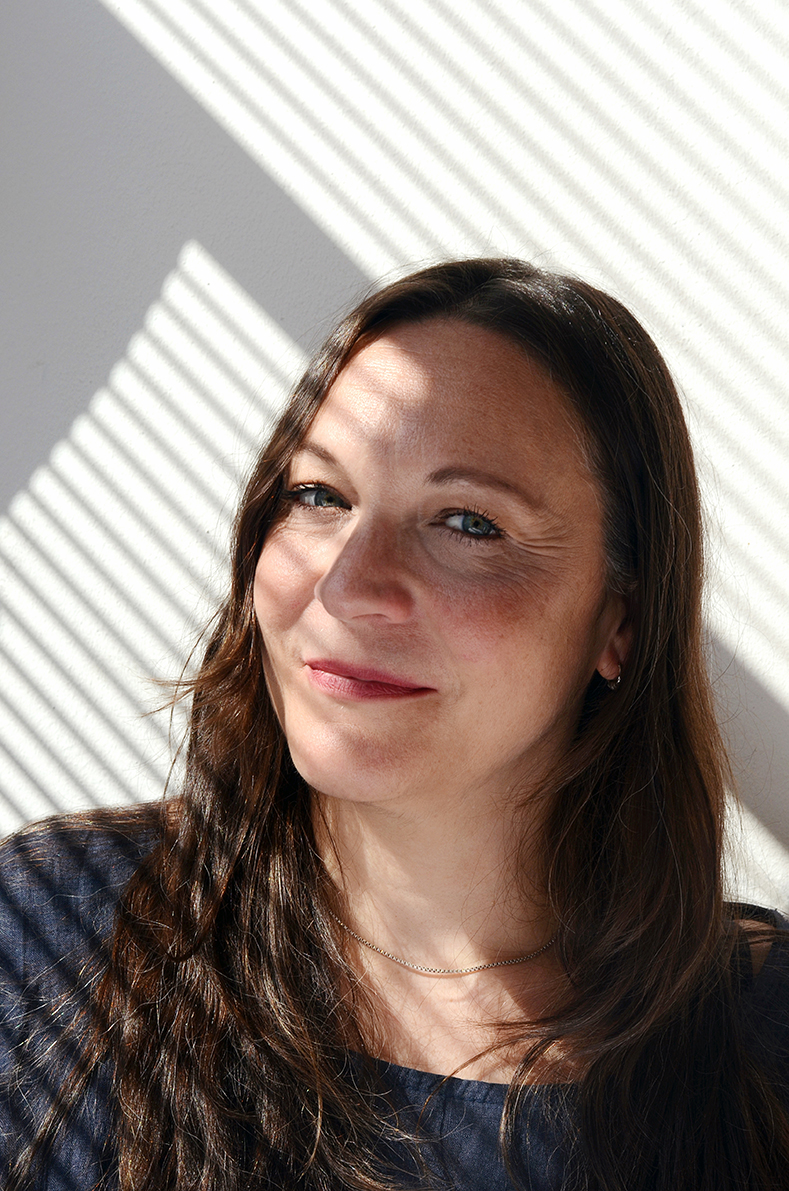Chiara De Giorgi’s story is one of courage, resilience, and the power of reclaiming one’s life. After enduring years in an abusive relationship, she made the difficult decision to leave and pursue her dreams, despite the overwhelming challenges ahead. In this interview, Chiara opens up about the pivotal moments that led to her breaking free, the strength she found in herself, and how she transformed her pain into a thriving creative career. Her journey is a testament to the human spirit’s ability to overcome adversity and find purpose and fulfillment on the other side of hardship. Through her words, Chiara offers inspiration to anyone facing similar struggles, showing that it is possible to not only survive but to flourish.
Can you describe a specific moment when you realized you needed to leave your abusive relationship to pursue your dreams?
For years, I was told that I wasn’t good enough and that I would never accomplish anything on my own. That any compliments I received were either out of kindness or driven by ulterior motives. Despite these attempts to undermine my confidence, a part of me still believed that I was good enough. However, over time, the constant negativity took its toll. My stress levels skyrocketed, I struggled to sleep, and I lived in a perpetual state of fight-or-flight. I couldn’t focus on any task, and my creative energy—whether in writing, crafts, or DIY projects—was completely stifled. It felt as though my mind was enveloped in fog, and I knew that this fog would never lift unless I left the relationship. But I didn’t know how to do it and to think about it was exhausting. I guess I was waiting for something, anything, to happen and show me the way. One day, he informed me that since he had always earned more than me throughout our marriage, he would claim all of my future earnings as his own. In that moment, I realized that he wanted complete control over me, and I would never truly be the master of my own destiny if I stayed. He would never allow me to pursue my goals, which he considered childish, or enjoy any success. Although I still didn’t know how I would do it, I knew then that I would close this chapter of my life forever.
How did you find the strength to take the step of leaving your marriage and focusing on your career?
I was in my forties. I realized that I could potentially have another forty years ahead of me. The thought of spending those years in the same situation felt unbearable. Stories have always been a central part of my life, and I used them to keep myself motivated. I imagined myself outside of that relationship, envisioning the things I would do, the choices I would be free to make, the time I would spend just living without being judged for every breath I took. Stories and dreams gave me the strength to hold on and move forward.
What role did support from friends and family play in your journey of healing and self-discovery?
Throughout my marriage, I never discussed my situation with anyone. Whenever I attempted to leave, he threatened to take our children away, so I stayed and remained silent. I feared that if I confided in someone, they would feel compelled to “save” me, and I wasn’t willing to face the consequences. But my children grew older and capable of making their own decisions, so he had nothing left to threaten me with. I opened up to my parents, my brothers, and my oldest friends. Talking to them was incredibly refreshing, and their support was invaluable during the two years it took me to pull myself together and be able to finally leave.
Can you share some strategies or practices that helped you reclaim your identity after leaving your marriage?
Although I’m a “DIY” kind of person, I quickly realized I needed help. The “fog” was too thick, and I had no idea where to start. I went to therapy for as long as I could afford it, and it was incredibly helpful. Therapy allowed me to stay focused, to prioritize myself for once, and to look in the mirror and understand who I really was behind all that fog. I immediately began writing again, mostly for myself, jotting down whatever was on my mind. My emotions were all over the place, making it difficult to think and plan, but writing helped me organize my thoughts. I also continued telling myself stories, using them as a way to envision the future I wanted to build for myself.
How has overcoming your past challenges influenced your work in writing and publishing?
I write fiction—it’s my language and my way of processing the world. One of the most important steps in my healing journey has been (and still is) paying attention to myself, my emotions, and my reactions. During the years I was in survival mode, I “switched off” my emotions, and I’m still learning to reconnect with them. It often takes time for me to find a name for what I’m feeling—joy, anger, frustration, sadness…—and to understand the underlying cause. This process of dissecting emotions helps me create characters that feel alive and relatable. Another aspect of my work is that I deliberately avoid promoting the traditional idea of happiness tied to love or conventional relationships. I believe that love and happiness mean something different for each of us, and they take unique forms depending on the individuals involved. We don’t have to conform to the mainstream interpretation of these concepts; instead, we should take the time to discover what they truly mean for us personally.
What was the most difficult aspect of transitioning from a place of trauma to pursuing your creative passions?
Quite simply, the financial aspect was the most critical challenge. My only focus when leaving my marriage was to get away as quickly and cleanly as possible, without causing any more damage to myself or my kids. As expected, he took advantage of the situation and kept most of our money and assets for himself. Until not so long ago, I worked a part-time job that had nothing to do with my passions, but it paid the bills. Over the past four years, I’ve juggled two jobs: one to cover expenses, and the other to build a solid portfolio of editing and translating work. I also started writing again and pursued my BA—something I wasn’t “allowed” to do during my marriage. These four years have been wonderful and full of successes but trying to catch up on all those “foggy” years has been hard work!
How did you manage the emotional and psychological impacts of CPTSD while working on your projects?
After I moved out, I naively thought everything would be easy. Shockingly (or perhaps not), it wasn’t. There were many moments when I doubted myself and the wisdom of leaving a secure situation. I feared I might fail. I heard only negative voices in my head, pointing out every mistake, every shortcoming, every reason why I was and would always be a failure. In those moments, I clung to the stories I told myself, to my dreams, and reminded myself that there was no going back—only forward. I wrote a lot during those times. I filled pages meant only for my eyes, spelling out my emotions and tracing each thought back to its origin, trying to make peace with myself and my past. My friends were also a great help, reminding me of how far I had already come.
What inspired you to start your own publishing and editing ventures?
I have always had a deep passion for working with books and stories. During my years of freelancing as an editor and translator, I connected with several people in the publishing world. Some of them have become good friends and trusted colleagues. It’s so refreshing to work with like-minded people. We talk about “work” at any time of day and night, and it is just a conversation between friends, it doesn’t feel like work at all. Since we all write in addition to our professional activities, we constantly share stories with one another. Joining forces to create something beautiful and try to earn a living from what we do best and are passionate about came quite naturally. That’s how Star Octopus Books was born. This project connects authors from around the world to create diverse collections of stories. We work in multiple languages, keeping it as international as possible.
So far, we’ve produced children’s and science fiction anthologies, some of which have been published both independently and through traditional publishers globally. We sometimes assist authors during the writing process, offering brainstorming sessions and suggestions to help shape their stories. Currently, we’re working on two children’s collections, a horror anthology, and a science fiction collection featuring exclusively female authors, which we are submitting for traditional publication. We collaborate with traditional publishing houses in Cyprus, Italy, and Türkiye, and plan to work on more collections in the future, potentially diversifying into new genres. We manage every aspect of the process—from selecting stories to editing, translating (when necessary), cover design, and book layout. Additionally, we handle the distribution and promotion of our books, as well as those of the authors who want to collaborate with us. Our team consists of me, based in Germany, and two wonderful friends and colleagues in Cyprus. The same process led to another project that’s about to launch. Alchiaro, set to officially launch in September, is tailored primarily for an Italian audience. We will offer a wide range of services related to the book business, catering to both aspiring authors and publishers. Our services will include coaching, editing, translation, and self-publishing assistance, covering every aspect of the publishing process. The team consists of myself and two friends who are also talented Italian editors.
Star Octopus Books https://chiaradegiorgi.blogspot.com/p/star-octopus-books.html
Alchiaro https://chiaradegiorgi.blogspot.com/p/alchiaro.html
Can you discuss the impact of your sci-fi novel and what you hope readers will take away from it?
The novel I’m working on is based on a short story I wrote a couple of years ago, which was included in a collection that has been published in four different languages so far. It wasn’t originally intended to convey a specific message; it’s a humorous tale about an extravagant creature who plays with the laws of physics and saves the world from the apocalypse. However, developing this story into a novel is giving me the opportunity to subtly share one of my core convictions: it’s wrong to try to change something or someone simply because they’re different from us and we believe our way is better. This often leads to catastrophic results for everyone involved. The book won’t be very long, and it’s completely teenager-friendly, making it appealing to anyone who enjoys physics, humor, and sci-fi.
How do you balance your various projects and manage your time effectively?
Having worked independently for several years, I’ve become good at managing my time. My past experience juggling two kids, one or sometimes two jobs, and all the household responsibilities taught me how to be efficient and split my attention across multiple tasks. Each week, I create a list of things I need to do, things I want to do, and things that need to be done eventually. I distribute shorter tasks—like administrative work, emails, phone calls, and social media—throughout the week. I then allocate a few days to focus on longer tasks from my list, like a translation or editing work. If there’s time left, I tackle the “sooner or later” items. I usually manage to throw in a couple of workouts a week, but I also go through lazy spells where I do not exercise and eat candies instead.
What advice would you give to someone who feels stuck in a toxic environment but is afraid to make a change?
I would suggest starting by talking to someone. If they don’t feel comfortable speaking to friends and family for whatever reason, seeking out a therapist or counselor can be very helpful. Based on my experience, I would definitely recommend a good therapist, who will help them make up their mind. There are often many reasons to stay in a difficult situation. A detached point of view may help understand whether those reasons are really worth it.
How did your perspective on yourself and your abilities change after leaving your abusive relationship?
Unfortunately, after six years I am still quite insecure, which leads me to be a perfectionist and beat myself up over every little oversight or mistake. Lately, when self-doubt threatens to overwhelm me, I’ve been practicing an exercise where I try to view myself through the eyes of a stranger. I ask myself: What do they see? Who is this woman, how is she rewriting her own story, how does she manage to keep a good spirit and a kind soul? This perspective helps me understand that success isn’t just about tangible achievements.
What have you learned about resilience and self-worth through your journey?
I am tougher than I thought and probably better at what I do than I will ever be able to see. I understand that my perception of self-worth can be biased, so I try not to stop and question myself too much. Instead, I focus on my plan and trust the process. I often have the feeling that I have no idea what I’m doing, but I’m doing it anyway and that’s how I get things done. And they seem to work, so I’m clearly doing something right!
Can you talk about the importance of authenticity in your creative work and professional life?
I remember the day I told him I would leave. I knew he would make things as difficult as possible for me, that the abuse would intensify, that he would try to drag me down. On that day, I made a promise to myself to remain true to who I was. I would not become a bitter, vindicative, spiteful, angry person. I was a good humored and happy person before, I would be one again. I kept that promise, even if it meant compromising my financial security. And while I wouldn’t say ‘no’ to some more money on my bank account at the end of the month, the peace and serenity I feel now are invaluable. I believe this transpires in both my writing and in my professional relations.
How has your experience shaped your approach to mentoring or supporting others in similar situations?
I speak reluctantly about my experience, to tell the truth. This is the first time I have discussed it publicly, as a matter of fact. I don’t want it to become the thing people remember me by. I am not the abuse I suffered, I am someone who loves what she does, who has good friends and a wonderful, supportive family. At the same time, I am aware that my experience can help others identify toxic situations and encourage them to seek a way out. Without “advertising” my situation, I never miss the opportunity to suggest to those I recognize as being in similar circumstances that it doesn’t have to be that way. It’s not “normal”; it’s simply wrong.
@chiaradegiorgi63






